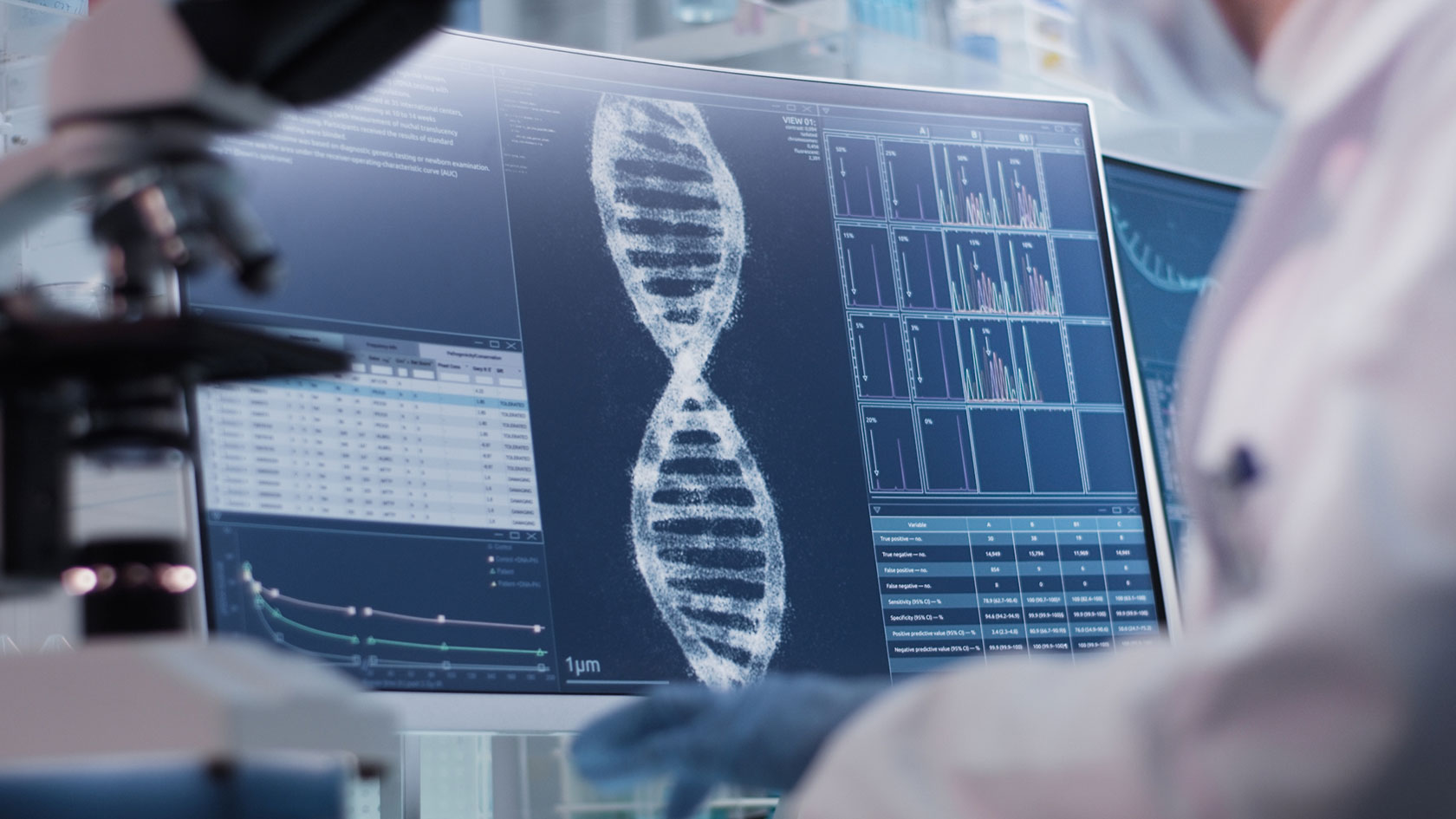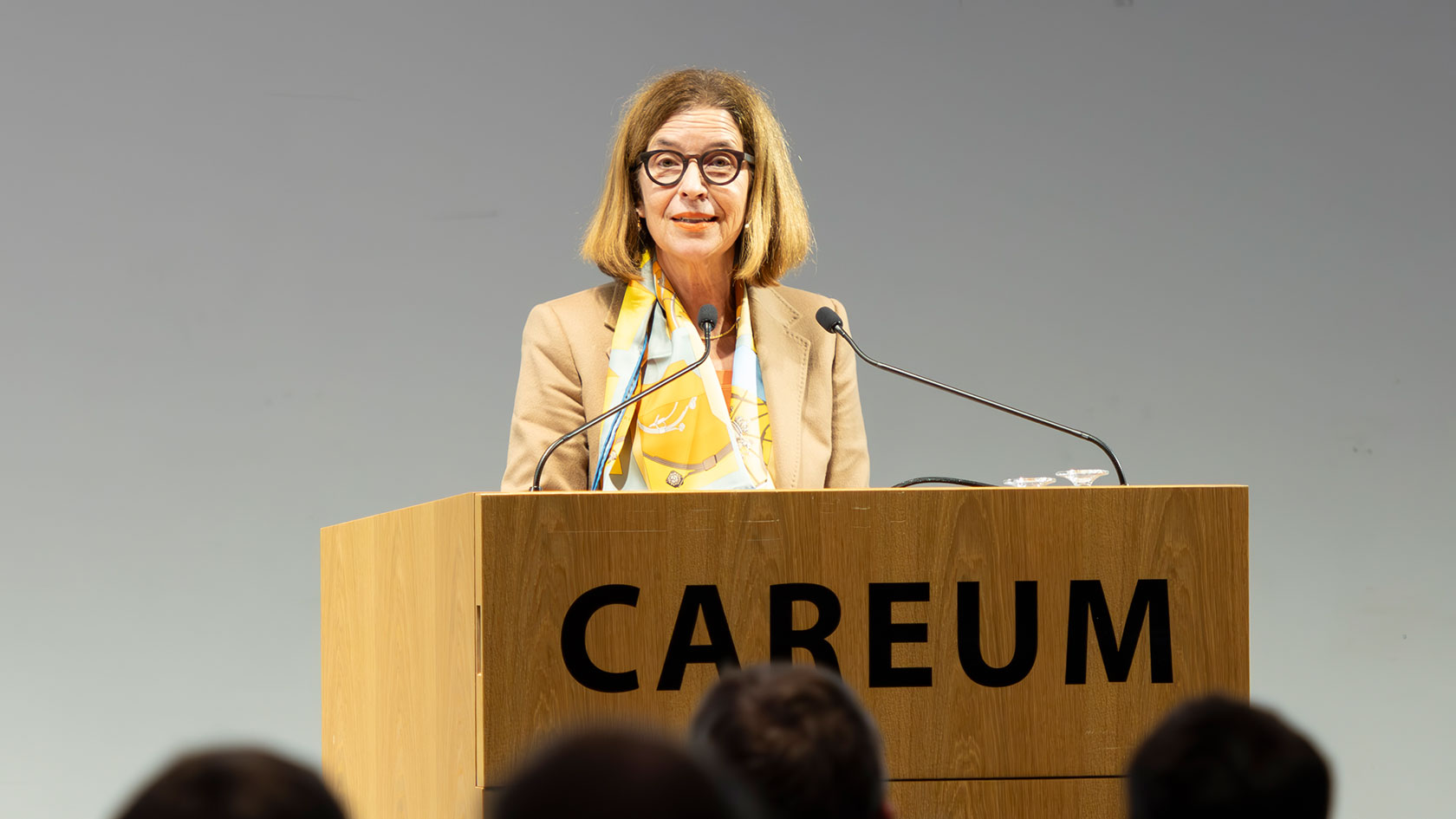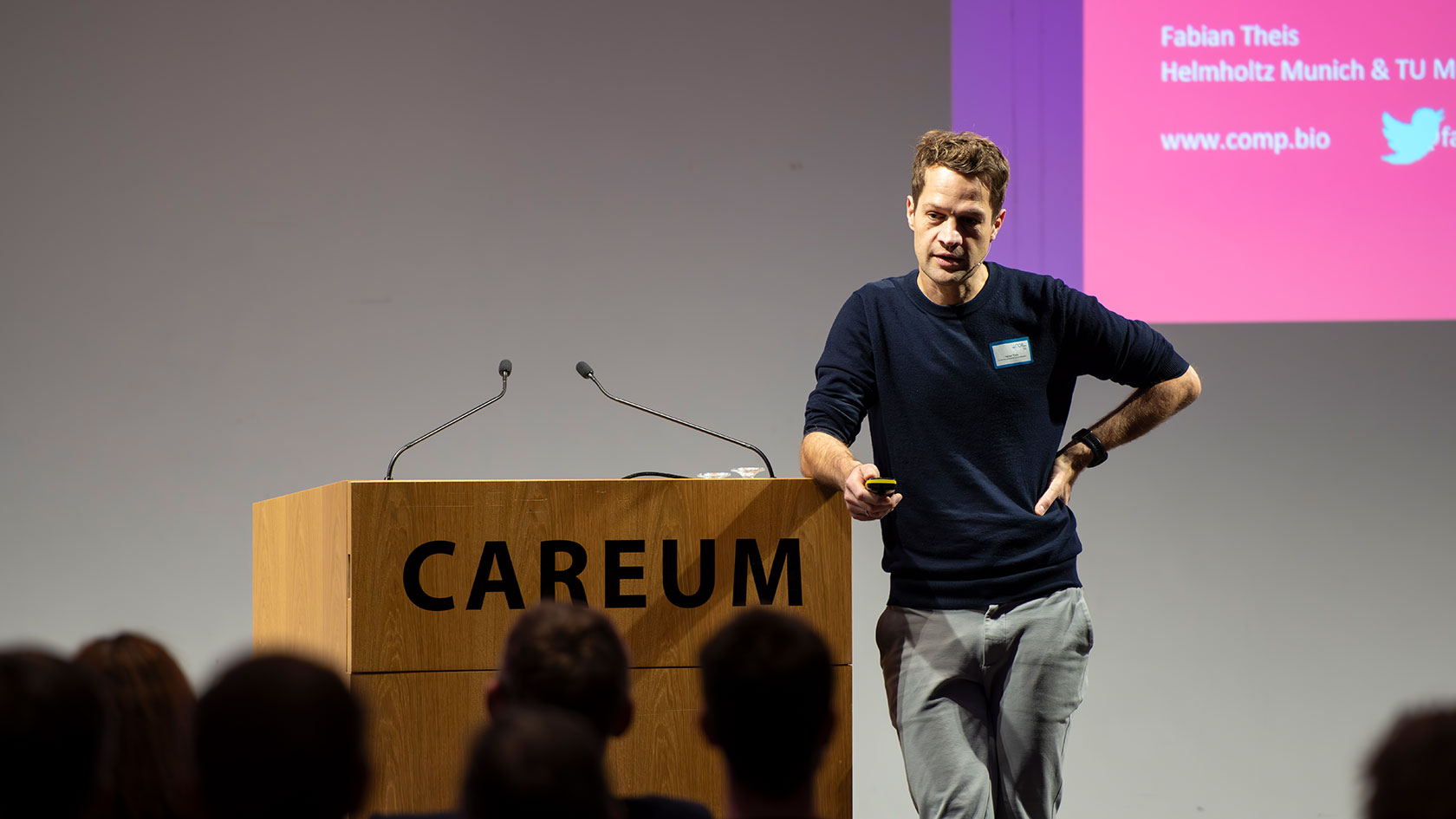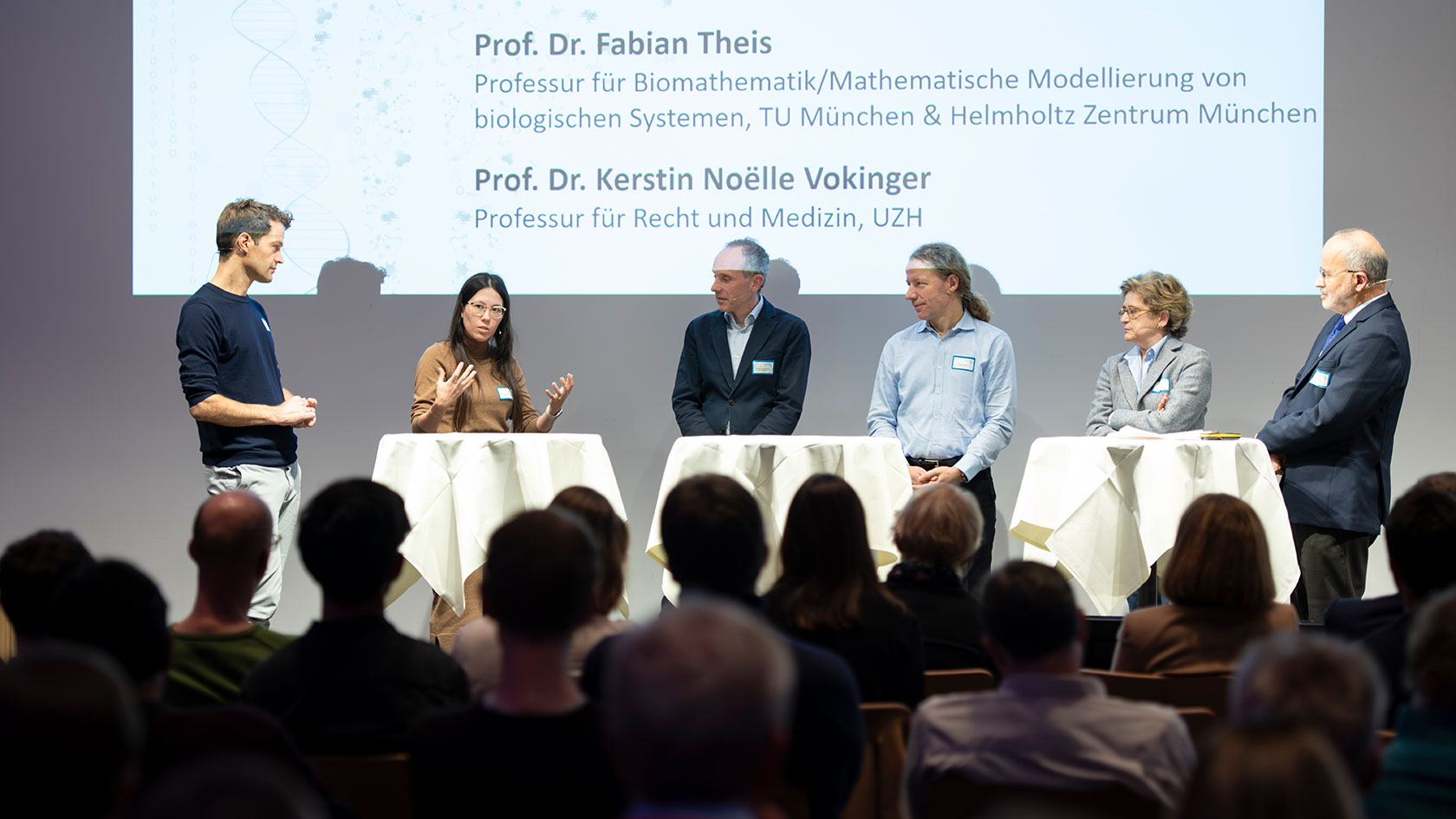Navigation auf uzh.ch
Navigation auf uzh.ch

Data is generated within the healthcare system every day: for example results of blood tests, tissue sample analyses and ultrasound or MRI scans. Such data are used to make a diagnosis and are subsequently archived. But what if computer systems could, with the help of artificial intelligence, autonomously learn from the data collected from patients and even develop new diagnoses and treatments? The evaluation of large amounts of medical data is a major aspect of healthcare research. Where do we stand today – and what are the prospects? These were the questions on the agenda at The LOOP Zurich’s annual event at UZH last week. The LOOP Zurich is a translational research center specializing in precision medicine.
Since 2020, scientists at The LOOP Zurich have been conducting cutting-edge research in precision and data-driven medicine. Researchers from the University of Zurich, ETH Zurich and the four university hospitals conduct joint research at the center – thanks in part to the financial support of foundations. “Research is expensive – but gives society a big return on investment,” said Beatrice Beck Schimmer, Vice President Medicine at UZH, in her opening speech.

One important project that scientists at The LOOP are currently working on is the development of the Biomedical Informatics Platform (BMIP), which provides data for research projects in accordance with the FAIR principle. “FAIR” stands for Findable, Accessible, Interoperable and Reusable. The LOOP Zurich aims to have the BMIP ready to exchange research and health data by 2025. The project, commissioned by University Medicine Zurich, is funded by the Government Council of the Canton of Zurich.
Scientists wishing to access collected health data via the platform for their studies will also receive support to manage the data and to meet data protection and ethical requirements. The entire process from making a request for data to receiving and analyzing the data could thus be completed within a few weeks, said Gunnar Rätsch, professor of biomedical informatics at ETH Zurich.
Christian Wolfrum, ETH Vice President Research, was keen to stress the benefits the platform will yield for patients in the long run. In the future, data from other hospitals and from the field of public health, such as health-tracking data, should also be integrated into the BMIP, added Wolfrum.
Markus Rudin, professor emeritus of molecular imaging and functional pharmacology, emphasized the translation of research findings to clinical application characteristic of The LOOP Zurich projects. “At The LOOP Zurich, we insist that research findings must be fed back into patient care,” he said, introducing two short video sequences presenting The LOOP Zurich projects. INTeRCePT researches leukemia and lymphoma in children and adults. StimuLOOP, meanwhile, aims to treat walking difficulties in Parkinson’s or stroke patients, thus improving their quality of life. Both projects enable patients to receive targeted, gentle and successful treatments, thanks to the precision-medicine approach.

Computer systems are already capable of independently analyzing health data, learning from them and even using them to establish treatment recommendations. Fabian Theis, professor of mathematical modeling of biological systems at the Technical University of Munich and director of the Institute of Computational Biology at Helmholtz Munich, who was a guest speaker at the event, reported on how artificial intelligence is currently used in practice and the opportunities the use of AI represents for patients.
Artificial intelligence refers to the ability of computer programs to learn. They can do this in two ways, says Theis. The first is supervised learning: researchers show the computer system a large number of similar things and tell it what is right or wrong, healthy or sick, and so on, depending on the question asked. The idea behind this method is that with sufficient input, the algorithm can eventually make the distinction by itself. This can save medical researchers a huge amount of time. But there is also a second way to use artificial intelligence: with this second approach, the computer is given minimal assistance and should be capable of learning without supervision. Mathematician Fabian Theis uses the second method for single cell analysis, for example: the computer receives data about individual cells and their metabolism, and looks for patterns. In this way, new connections can be uncovered.
Jens Selige, general manager of The LOOP Zurich, presented the project prizes, awarded each year at the annual event. Young researchers are able to put their own projects forward for the awards, and if successful win generous financial support for their platforms.
Sebastiano Caprara presented the first winning project: the Biomedical Informatics Imaging Platform (BMI2), run by a consortium of hospitals. Caprara works at Balgrist University Hospital and currently heads the Digital Medicine Unit there. The BMI2 project collects image data, for example from MRIs, and analyzes it using a process called segmentation, a branch of digital image processing and computer vision. “By analyzing the results, we can get more precise diagnoses, for example in the case of damage to individual vertebrae,” says Caprara.
The second winning project, POLAR, was presented by Marco Bühler, a pathologist at the University Hospital Zurich. Researchers working in the consortium plan to gather data from patients with lymphoma. This includes anamnesis, data from imaging, protein analysis and pathology, and genetic information. All these data, currently still recorded in different databases, will be fed into one single database. “We want to compile the world’s largest data set on lymphoma with the aim of using the data to benefit patients in the clinic and contributing to the search for a cure,” said Bühler.

The event was rounded off with a panel of experts who discussed the importance of data for the future of medical research from various perspectives. UZH professor of neuro-intensive medicine and chief of service of the neuro-intensive care unit at USZ, Emanuela Keller, described how artificial intelligence in intensive care medicine can provide assistance in making decisions about patients’ treatment, but can also lead to potential conflicts if the AI recommendations do not match the doctors’ empirical knowledge. Gunnar Rätsch and Fabian Theis, along with Michael Krauthammer, professor of medical informatics at UZH, explained how data could be used for research purposes through modern processing methods, and also addressed the data-protection issues that need to be taken into account. Finally, UZH law scholar and medic Kerstin Vokinger spoke about the legal data-protection challenges we will face in the future, particularly in Switzerland with its federalist legal system in which laws differ from canton to canton.